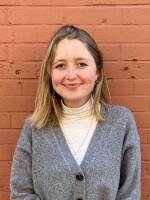A MARTÍNEZ, HOST:
Los Angeles is at the epicenter of a summer storm of labor unrest. More than 100,000 workers, from actors and screenwriters to hotel housekeepers, are on strike. As NPR's Danielle Kaye reports, those labor actions pose a real-world political dilemma for political scientists, whose convention this Labor Day weekend is an affront to striking hotel workers.
(SOUNDBITE OF CAR HORN HONKING)
DANIELLE KAYE, BYLINE: It's a Thursday morning at the JW Marriott hotel in downtown LA. The scene is a common one in the city this summer - workers wearing their brightly colored union T-shirts, holding signs that read boycott in bold print.
(SOUNDBITE OF CAR HORN HONKING)
KAYE: This Marriott is one of about 60 unionized hotels where workers have been without a contract since late June. They've been staging rolling strikes, demanding higher wages to afford the high cost of living in LA. Their union is asking conferences to boycott LA in solidarity. One of the big groups they've targeted - the American Political Science Association, also known as APSA, which is holding a meeting here this Labor Day weekend.
KURT PETERSEN: We asked them to cancel or relocate their event online or someplace else.
KAYE: That's Kurt Petersen, co-president of UNITE HERE Local 11, the union that represents some 15,000 hotel workers.
PETERSEN: They can, you know, mince words about what they did, but they're coming. And we asked them not to do that.
KAYE: So the 6,000 political scientists who normally attend APSA have a big political decision on their hands. The conference is an annual highlight, a place for them to share research and network for jobs. Under pressure from the union, APSA leaders moved all panels and events away from the JW Marriott to the nearby Convention Center. But lots of people will stay at hotels like the Marriott that are subject to strikes, and others will simply stay away.
PETER DREIER: I wouldn't be surprised if less than 3,000 people actually show up.
KAYE: Peter Dreier is a political science professor at Occidental College. He's talking inside the Marriott lobby as workers picket just outside.
DREIER: I think there's going to be a significant decline.
KAYE: He won't be at the meeting this weekend. The Latino Caucus of Political Science has withdrawn from this year's conference as a sign of solidarity with the majority Latino hotel workers. Other groups are also urging their members not to attend.
ERIN PINEDA: We really need to stay away from APSA and from Los Angeles over Labor Day weekend.
KAYE: That's Erin Pineda, a professor of government at Smith College. She's skipping the conference too. APSA didn't respond to requests for comment. Its executive council has said in statements that it's met union demands by moving events out of the JW Marriott and that canceling the conference entirely would be too costly. According to its website, the association still has room blocks at several hotels subject to strikes. Pineda says that means the burden is now falling on individual members to navigate the tricky network of picket lines.
PINEDA: Now, you know, the membership is polarized. The kind of battle lines are those who cross pickets and those who don't.
KAYE: Among those still traveling to LA is Jack Zhang, a political science professor at the University of Kansas. Zhang says the vast majority of faculty are sympathetic to the hotel workers, himself included.
JACK ZHANG: I support them and I hope they get the raise that they're seeking, but I'm there to attend a professional conference.
KAYE: Zhang says canceling the conference altogether would come at too big a cost to APSA financially and to his graduate students who rely on the event for networking. As of last week, hotel workers are calling for all conventions to boycott Los Angeles until the hotels meet their demands, and that'll likely take a while.
Danielle Kaye, NPR News, Los Angeles.
(SOUNDBITE OF BUTCHER BROWN'S "SUNDRESS") Transcript provided by NPR, Copyright NPR.
NPR transcripts are created on a rush deadline by an NPR contractor. This text may not be in its final form and may be updated or revised in the future. Accuracy and availability may vary. The authoritative record of NPR’s programming is the audio record.



